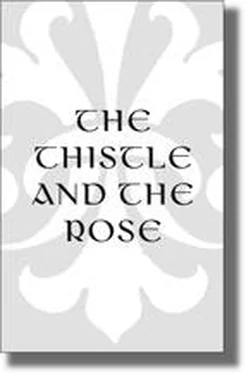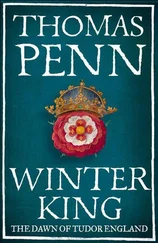Jean Plaidy - To Hold the Crown - The Story of King Henry VII and Elizabeth of York
Здесь есть возможность читать онлайн «Jean Plaidy - To Hold the Crown - The Story of King Henry VII and Elizabeth of York» весь текст электронной книги совершенно бесплатно (целиком полную версию без сокращений). В некоторых случаях можно слушать аудио, скачать через торрент в формате fb2 и присутствует краткое содержание. Жанр: Старинная литература, на русском языке. Описание произведения, (предисловие) а так же отзывы посетителей доступны на портале библиотеки ЛибКат.
- Название:To Hold the Crown: The Story of King Henry VII and Elizabeth of York
- Автор:
- Жанр:
- Год:неизвестен
- ISBN:нет данных
- Рейтинг книги:5 / 5. Голосов: 1
-
Избранное:Добавить в избранное
- Отзывы:
-
Ваша оценка:
- 100
- 1
- 2
- 3
- 4
- 5
To Hold the Crown: The Story of King Henry VII and Elizabeth of York: краткое содержание, описание и аннотация
Предлагаем к чтению аннотацию, описание, краткое содержание или предисловие (зависит от того, что написал сам автор книги «To Hold the Crown: The Story of King Henry VII and Elizabeth of York»). Если вы не нашли необходимую информацию о книге — напишите в комментариях, мы постараемся отыскать её.
To Hold the Crown: The Story of King Henry VII and Elizabeth of York — читать онлайн бесплатно полную книгу (весь текст) целиком
Ниже представлен текст книги, разбитый по страницам. Система сохранения места последней прочитанной страницы, позволяет с удобством читать онлайн бесплатно книгу «To Hold the Crown: The Story of King Henry VII and Elizabeth of York», без необходимости каждый раз заново искать на чём Вы остановились. Поставьте закладку, и сможете в любой момент перейти на страницу, на которой закончили чтение.
Интервал:
Закладка:
He sat at table with his brother and sister.
Arthur was constantly told: “Now you must eat that, my lord. You’ll never grow into a big strong boy if you don’t.”
No need to tell Henry. He could always eat all the beef or mutton which was put before him; he always asked for his pewter tankard to be refilled with the ale which they were given to drink. They never had water; it could be dangerous. He liked good spiced meat far better than that salt fish they had on Fridays and in fact he disliked Fridays because of the fish, for food meant a great deal to him.
Meals were quite a ceremony. They were presided over by squires well suited to the task, for princes must be taught to conduct themselves in a seemly fashion at the table and not fall on the food like ravenous wolves. They must not show too great an interest in the food—because that was what the needy would do. They must wash their hands both before and after a meal; they must eat with a knife gracefully and use the correct fingers for holding the food. Even the washing of hands was a ceremony, for one of the carvers would bring the bowl, then kneel and pour water over Henry’s hands while another servant stood by with a towel to dry them.
The most difficult part was to show indifference to the food. That was something Henry could not feel for he was invariably ravenously hungry.
It was September about three months after Henry’s third birthday when messengers arrived at the Palace. They came to announce that in a few days the King and Queen would be visiting Eltham.
The household was in a twitter of excitement, which was mainly apprehension. They were all very much in awe of the King, for although he rarely spoke to any of them, if he noticed anything of which he disapproved there would be a complaint and the fact that it would not be made in the hearing of the one to blame made it worse because there was no chance of answering the charge.
The Queen was a beautiful, gentle lady, but it was the King who counted.
Henry was at the nursery window with Arthur and Margaret when the cavalcade rode into the great courtyard. He saw the magnificently caparisoned horses and the servants of the King in their green and white livery mingling with those of the Queen’s purple and blue. It was exciting. Henry jumped up and down in his glee.
“Be still, Henry,” admonished Margaret. “You are behaving like a stable boy.”
Henry‘s little blue eyes narrowed. He would have liked to send his bronze horse and knight rushing straight at her. But this was not the time for retaliation so he merely scowled at her, which did not bother her in the least and she laughed at him saying, “Now you look really ugly!”
As though he ever did! As though he ever could! How often had he heard the servants say he was the image of his grandfather Edward and he had been one of the most handsome men in England.
Anne Oxenbrigge was running into the nursery casting an anxious eye over them all. Arthur’s tutor was there with other attendants and servants because now was the time for the children to go down and greet their parents.
Arthur led them into the great hall.
They knew what they had to do. They must bow to the King and Queen and wait until they were spoken to.
The King was a disappointment to Henry. He did not look like a king. Henry would have liked to see his father in purple velvet and ermine with a golden crown on his head.
When I am King . . . he thought . . . and then with a guilty look at Arthur . . . if I am King I shall always look splendid. My father might be just a squire or a lord . . . out for a day’s hunting. The Queen was beautiful though—like a picture, rather remote, with her plump rather expressionless face and a certain longing in her eyes, which the children did not understand.
The King watched them to make sure they behaved in the correct manner and when the first ceremony of greeting was over they were all a little more comfortable.
Refreshment was immediately brought for the party and Arthur served the King and then the Queen with wine and cakes. The Queen kept Margaret and Henry with her . . . one on either side, and Henry thought how beautiful she was and was proud of her. He kept comparing her with Anne Oxenbrigge. Anne was by no means as beautiful . . . but somehow he would hate them to send Anne away whereas when the Queen went he would not mind so very much after the first day or so, and then he would only mind because it meant that all the excitement of a royal visit was over.
The Queen asked questions about what they did. Margaret tried to talk all the time but Henry was not having that. There was quite a little babble about the Queen, which was different from what was happening with the King and Arthur who seemed to find it difficult to keep their conversation going.
Finally that ceremony was over and the King and Queen went to their apartments while the children returned to the nurseries, there to wait the next summons, which would be for dinner; as they would take this with their royal parents their mentors hoped they would remember all they had been taught about the washing of hands and the correct method of eating.
Arthur was given precedence of course; he it was who held the basin while the King’s hands were washed; then he sat beside the King and there was more of that uneasy talk. Poor Arthur, he was wishing that the ordeal was over.
They were all glad when the tumblers who traveled with the King and performed for his entertainment were brought in. The King’s stern face relaxed into a smile as he watched them and young Henry was so excited he leaped up and tried to imitate them, which caused a great deal of amusement and even made the King laugh aloud.
Then there was the King’s fool called Patch who said a lot of things to make them all laugh and was really quite disrespectful to the King, which Henry could not understand until he learned afterward that this was a special privilege for fools whom nobody took seriously.
If I were a king, he thought, I wouldn’t allow anyone to speak disrespectfully of me, fool or no.
Ever since he had overheard that conversation he was thinking more and more of what he would do if he were king.
He was surprised when the King told him to come and sit beside him. His father studied him very carefully.
“You may have been wondering why the Queen and I have come to Eltham.”
“To see me . . . and Arthur and Margaret.”
“Yes, that is so. But there is a rather special reason and it concerns you, my son.”
Henry’s eyes were bright with excitement; his little mouth turned up in a smile.
“I am going to honor you, Henry. I am going to give you a title. You must be worthy of it.”
“I will, my lord,” said Henry firmly.
“I believe you will. You are going to be the Duke of York.”
“Couldn’t I be Prince of Wales?”
“What do you mean? Arthur is the Prince of Wales.”
“He doesn’t like being Prince of Wales very much. I should . . .”
The King’s smile was a little wintry. “You must not say such things. There is a Prince of Wales and he will remain Prince of Wales until he becomes the King. You will have to understand these matters. You will be Duke of York, which is next in rank and honor to the Prince of Wales.”
Henry was subdued. He had betrayed his dreams, That was silly.
Although he hoped that one day he would be the King, he knew that
he must never tell anybody.
“What must I do, my lord?” he asked.
“You will be told and have time to learn what you have to do. It is a most important ceremony and I want you to be worthy of it.”
Henry nodded gravely.
“There, my son,” said his father, “that is the purpose of our visit . . . to honor you.”
Читать дальшеИнтервал:
Закладка:
Похожие книги на «To Hold the Crown: The Story of King Henry VII and Elizabeth of York»
Представляем Вашему вниманию похожие книги на «To Hold the Crown: The Story of King Henry VII and Elizabeth of York» списком для выбора. Мы отобрали схожую по названию и смыслу литературу в надежде предоставить читателям больше вариантов отыскать новые, интересные, ещё непрочитанные произведения.
Обсуждение, отзывы о книге «To Hold the Crown: The Story of King Henry VII and Elizabeth of York» и просто собственные мнения читателей. Оставьте ваши комментарии, напишите, что Вы думаете о произведении, его смысле или главных героях. Укажите что конкретно понравилось, а что нет, и почему Вы так считаете.












